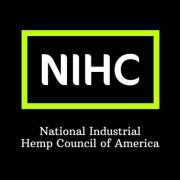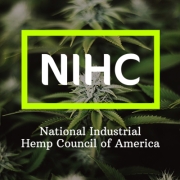
HEMP CHECKOFF
ABSTRACT:
At the end of 2020, the National Industrial Hemp Council (NIHC) and Hemp Industry Association (HIA) reached out and surveyed a sample of industry stakeholders including; farmers, oil, seed, CBD processors,seed companies, importers and exporters, and others involved in the hemp industry. The goal was to get their opinions on a hemp check off program. We found there is a high level of overall interest and support for the concept of a national hemp checkoff. The positive results of the survey have encouraged us to proceed on a hemp checkoff program. Please read on to learn about the details of the results.
_______________________________________________________________________
INTRODUCTION:
The NIHC and HIA used our respective membership and communications resources to distribute a survey regarding establishment of a checkoff for the hemp industry to hemp industry stakeholders. The NIHC also asked chief economist Beau Whitney of Whitney Economics to distribute the survey to his email list of over 7,500 hemp farmers and producers. NIHC also worked with the online media and marketing group “Let’s Talk Hemp” to distribute the survey to their readers. The Let’s Talk Hemp newsletter has a distribution of 20,000 plus subscribers. HIA also secured an article in Hemp Industry Daily (HID) that promoted the survey and encouraged readers to reply with their opinions. The survey generated 270 responses.
METHOD:
We conducted the survey from November 30, 2020 until December 31, 2020 through the online portal Survey Monkey. Using the platform Survey Monkey allowed us to efficiently share the survey and industry stakeholders to easily provide their feedback on issues facing the U.S. hemp industry.
RESULTS:
The following are the questions asked and the survey responses generated.
1. On a scale of 1-5, where 1 is strongly disagree and 5 is strongly agree, how do you feel about the following statement: I believe that the hemp industry needs additional research in the areas of seed development, agronomics, or fiber, grain or oil or CBD processing?

Over 80 percent of respondents either strongly agreed or agreed on the need for additional research in seed development, agronomics, fiber, grain and CBD and/or oil processing. It’s worth noting that those in the industry who either strongly disagreed or disagreed with that statement was at 10 percent or less for each research area.
2. On a scale of 1-5, where 1 is strongly disagree and 5 is strongly agree, how do you feel about the following statement: I would support a promotion program to expand the market for industrial hemp fiber, grain, oil or CBD, and their uses and applications?

There was strong support for promotion of hemp and hemp-derived products. Over 80 percent of respondents either agreed or strongly agreed on the need for a promotion program for hemp fiber products and oil and CBD products. Two-thirds of respondents agreed on the need for a promotion program for seed related products and when combined with those respondents who only agreed, the level of support for promoting seeds was just shy of 80 percent. It’s worth noting that the level of support for promoting oil and CBD products was strongest out of all three subgroups.
3. On a scale of 1-5, where 1 is strongly disagree and 5 is strongly agree how do you feel about the following statement: I would support a consumer education program to educate consumers about hemp generally and, more specifically about hemp fiber, grain, oil or CBD, and their uses, benefits and applications?

The intensity of support for consumer education was strongest out of all survey questions. For hemp generally, nearly 80 percent of all respondents strongly agreed on the need for more consumer education. With regards to oil and CBD products, approximately three out of every four respondents agreed on the need for more consumer education. The need for consumer education for hemp-derived fiber products was over 30 percent. While support for consumer education of grain products was roughly two-thirds, combined with those who both agreed and strongly agreed the level of support was nearly 80 percent.
All told, nearly eight out of every ten respondents of the surveyed either agreed or very strongly agreed on the need for more consumer education.
4. On a scale of 1-5, where 1 is strongly disagree and 5 is strongly agree how do you feel about the following statement: I would support a nominal assessment (e.g., less than 1% of value) to support an industry research, consumer education and promotion program to support the industrial hemp industry?

While support for a nominal assessment of less than one percent of the farm value was not as intense as support for research, education and promotion, it’s worth noting that less than 20 percent of the industry collectively voiced opposition to a nominal assessment.
Support for an assessment on oil and CBD related products was most intense with over 50 percent of those respondents strongly agreeing on the need for an assessment to conduct research, promotion and education. Nearly 50 percent of all respondents surveyed voiced support of an assessment on fiber products followed by roughly the same level of support for seed and grain products.
5. For our purposes, can you please describe your role in the industrial hemp industry?

Nearly half of those surveyed were hemp farmers. The next highest level of responses was from those who process CBD and retail locations.
CONCLUSION:
The survey responses were favorable to a hemp checkoff with well over two-thirds of respondents strongly agreeing with the essence of a checkoff, the need for more research, for greater promotion of the industry, and for greater consumer education of the hemp industry.
While the intensity was slightly less in favor of those who strongly agree on the need for a nominal assessment, two-thirds of respondents did show support for a nominal assessment of less than one percent of the value of their crops to fund industry research, promotion and consumer education with roughly half of respondents strongly agreeing with that statement.
MISCELLANEOUS OBSERVATIONS:
While the history of industrial hemp is measured in millennia, the industry in the U.S. is new. New industries need innovation to develop better products and education to promote consumption. Without this innovation and research, our nascent industry will continue to be at a competitive disadvantage against more established commodities in the marketplace.
There continues to be misunderstanding and myths surrounding checkoff programs. Specifically, amongst farmers, that a checkoff program is run by ‘outsiders’ and not farmers or those not contributing to the program. Further education needs to take place that the USDA Secretary of Agriculture appoints a board from those individuals and companies that contribute to the checkoff program.
Another misunderstanding is that a checkoff would benefit only one sector of the industry. For example, a company that manufactures hemp protein believed that a hemp checkoff would not benefit them, and only CBD companies. A carefully constructed checkoff would work on behalf of all sectors of the hemp industry.
There is much work that needs to be done, but the initial sample of respondents shows that there is clear support for a national hemp checkoff program.
© 2021 National Industrial Hemp Council. All Rights Reserved.




 Herrick (“Rick”) Fox has been a member of the NIHC since its inception and serves as co-chair of the NIHC Government Relations committee (GAC), with good reason. As owner of Meristem Farms, located in Vermont, he has an interest in securing a sound policy and regulatory foundation for hemp farms of all shapes and sizes, including smaller and independent farms like his, and he also has 15 years of policy, regulatory and management experience in USDA.
Herrick (“Rick”) Fox has been a member of the NIHC since its inception and serves as co-chair of the NIHC Government Relations committee (GAC), with good reason. As owner of Meristem Farms, located in Vermont, he has an interest in securing a sound policy and regulatory foundation for hemp farms of all shapes and sizes, including smaller and independent farms like his, and he also has 15 years of policy, regulatory and management experience in USDA.
 Industry experts from various private and governmental sectors convened this week for the first-ever virtual 2021 National Hemp Symposium, brought to life by the National Academies of Sciences
Industry experts from various private and governmental sectors convened this week for the first-ever virtual 2021 National Hemp Symposium, brought to life by the National Academies of Sciences 







 Carpenter (left) has held some very prestigious prior roles in his career. He served for over ten years as the CEO of the North American Meat Institute (NAMI) where he worked closely with government regulators, including new food safety regulations and marketing. He also served for nearly 15 years as the Deputy Administrator for the USDA’s Agricultural Marketing Service, where he oversaw commodity checkoff programs. While at USDA, he represented the United States on the United Nation’s Committee on Agriculture from 1990 until 2006.
Carpenter (left) has held some very prestigious prior roles in his career. He served for over ten years as the CEO of the North American Meat Institute (NAMI) where he worked closely with government regulators, including new food safety regulations and marketing. He also served for nearly 15 years as the Deputy Administrator for the USDA’s Agricultural Marketing Service, where he oversaw commodity checkoff programs. While at USDA, he represented the United States on the United Nation’s Committee on Agriculture from 1990 until 2006.

